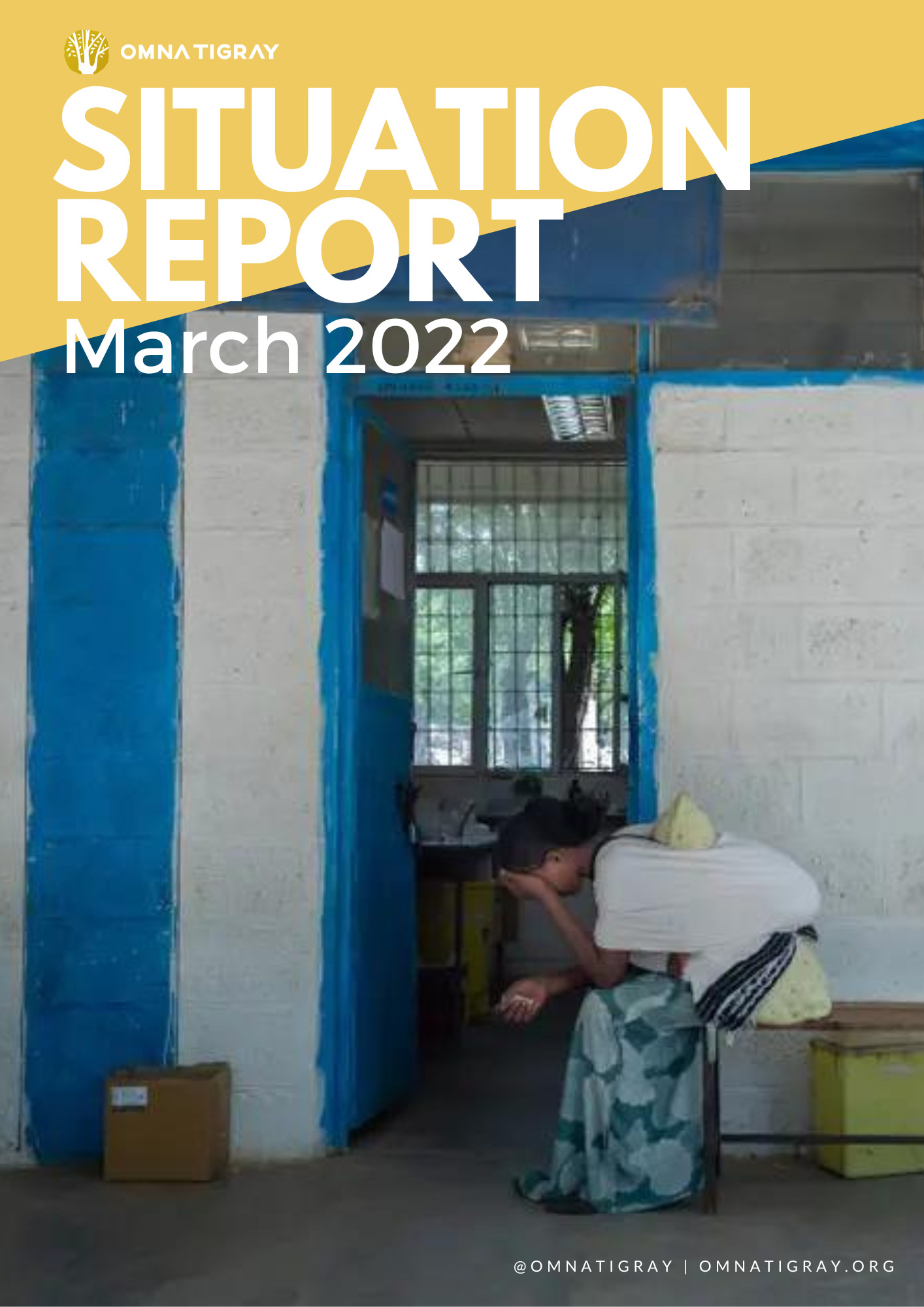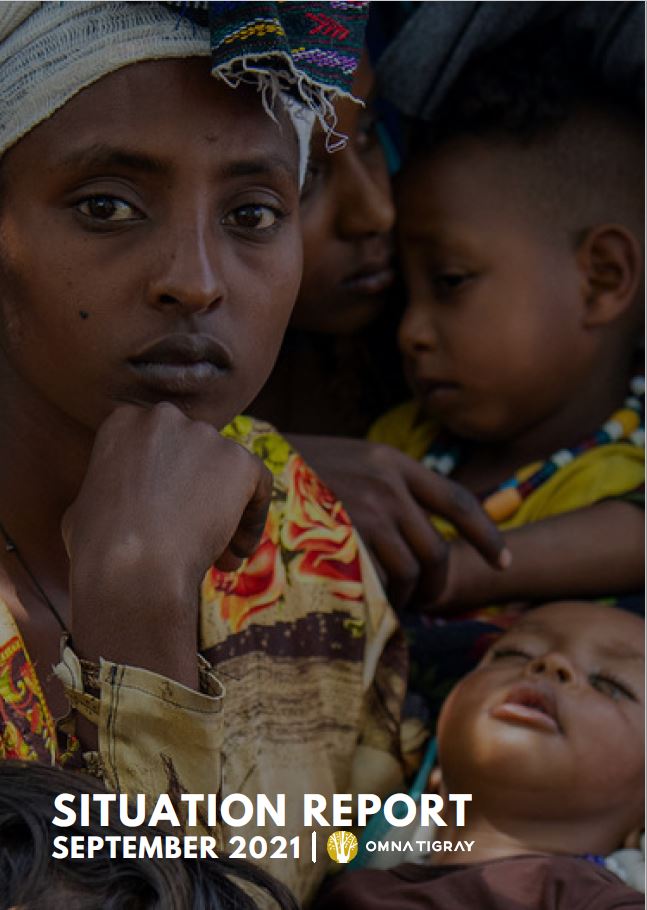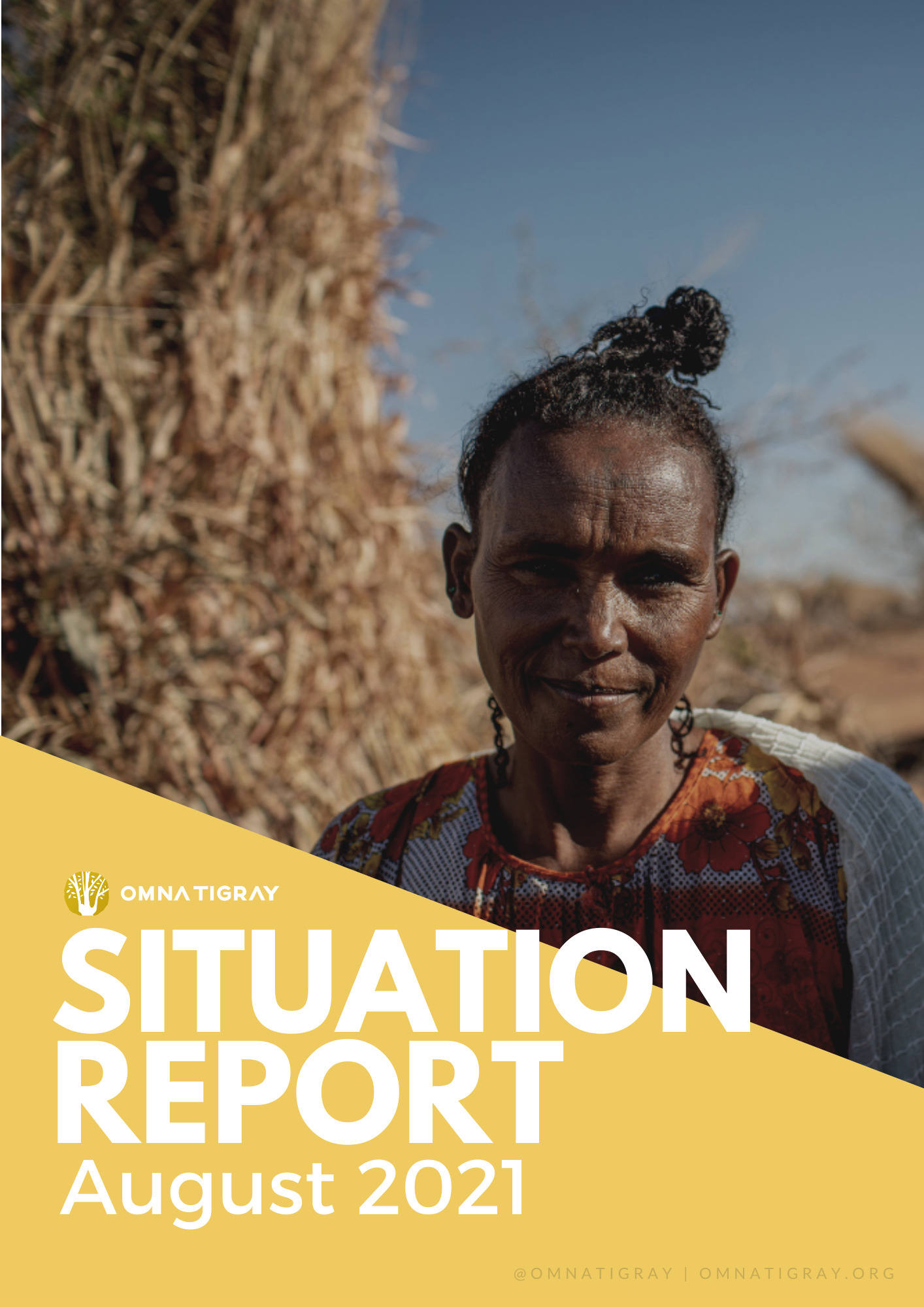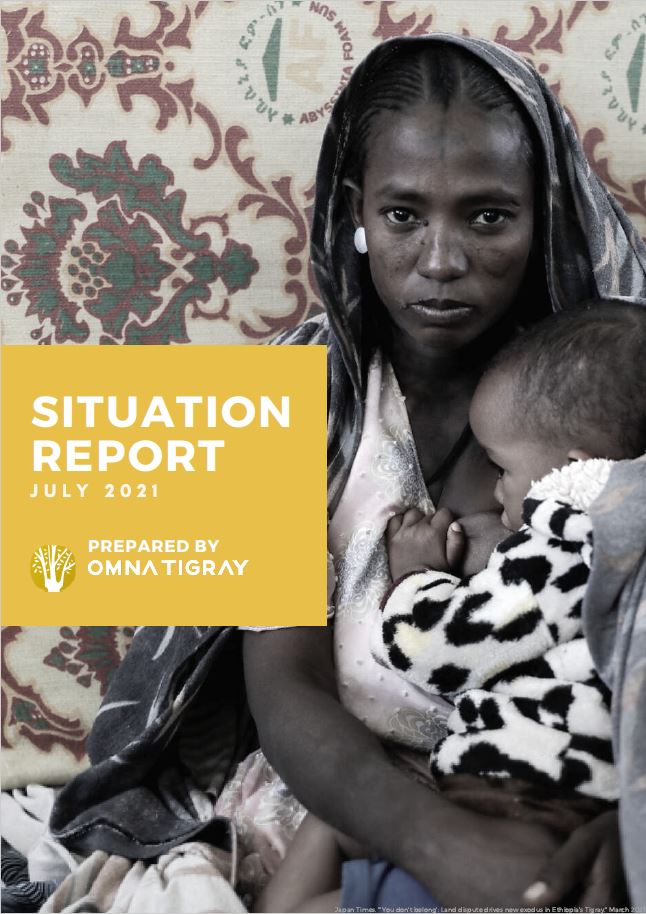EXECUTIVE SUMMARY
March 4, 2022 marked 16 months since the beginning of Ethiopia and Eritrea’s genocidal war on Tigray. National forces from Ethiopia, Eritrea, and Somalia and troops and militia from neighboring Afar and Amhara regions have used armaments supplied by Turkey, China, Iran and the United Arab Emirates (UAE) to carry out this genocidal war against the 7 million people of Tigray. Because of the communications and information blackout imposed on Tigray since November 2020, it is nearly impossible to get an accurate estimate of the devastation unleashed in the region in the last 16 months. However, the few reports made available from humanitarian agencies on the ground and eyewitness accounts provide a glimpse into the scale of the devastation, which has resulted in tens of thousands of deaths and cases of Sexual and Gender-Based Violence (SGBV), over 70,000 refugees in Sudan, over 2.2 million people internally displaced, and a man-made famine that threatens the lives of millions of people.
Additionally, the region’s road, water, education, and health infrastructure has been completely decimated, exacerbating the dire humanitarian catastrophe civilians in Tigray face. Immunization programs, treatment for TB, HIV, and malaria, as well as family planning supplies and essential supplies, have been completely depleted for over 6 months, resulting in a healthcare emergency in Tigray. The decimation of the healthcare system, combined with the ongoing siege on Tigray, not only threatens the lives of millions of people today, but will have devastating consequences for the next generation of Tigrayans.
In February 2022, Al Jazeera reported on a campaign of ethnic cleansing perpetrated against Tigrayans living in the town of Abala, in Tigray’s neighboring Afar region that took place in late December of 2021. During this campaign of ethnic cleansing, which involved massacres, looting, and sexual violence, Afar militiamen and Eritrean troops went door-to-door, identifying and killing Tigrayans throughout the town of Abala. Witnesses and survivors shared their accounts and footage of bodies in mass graves, showing hundreds of bodies dumped into craters in distant places. Entire families were killed in this days-long massacre, including 16 members from a single Tigrayan family.
The Ethiopian government’s continued dehumanization and incitement of hate speech against Tigrayans have fuelled these types of attacks, which have claimed the lives of hundreds, if not thousands of Tigrayans. Moreover, the ongoing involvement of Eritrean forces in the most egregious atrocities has become an alarmingly common phenomenon.
While the Ethiopian and Eritrean governments have repeatedly informed the international community that Eritrean forces have left Ethiopia, it is glaringly clear that Eritrean forces are still operating with complete impunity across Ethiopia and fueling and leading the genocidal campaign against Tigrayans.
In February 2022, the world saw some significant challenges to global order and security, with flagrant violations of the rules and norms governing international relations, as Russia launched a war of aggression against neighboring Ukraine. While this action has rightly been criticized by the international community, it is vital to remember that the erosion of the liberal international order is not happening in a vacuum but rather in a context in which such violations have previously been allowed to go unpunished. As human rights advocates across the world have warned, violations of the most
fundamental human rights going unanswered anywhere in the world emboldens those who seek to commit such violations themselves.
For over a year, the Ethiopian and Eritrean governments have been committing grave violations, including war crimes, crimes against humanity, and acts of genocide against the 7 million people of Tigray, and the global response has been tepid at best. This sets a perilous precedent to other autocrats and dictators and further threatens existing mechanisms of global governance.
Given these developments, it is more important than ever for the international community to take swift and decisive action to stop the atrocities perpetrated by the combined forces of the Ethiopian and Eritrean states in collaboration with Amhara and Afar regional special forces.









